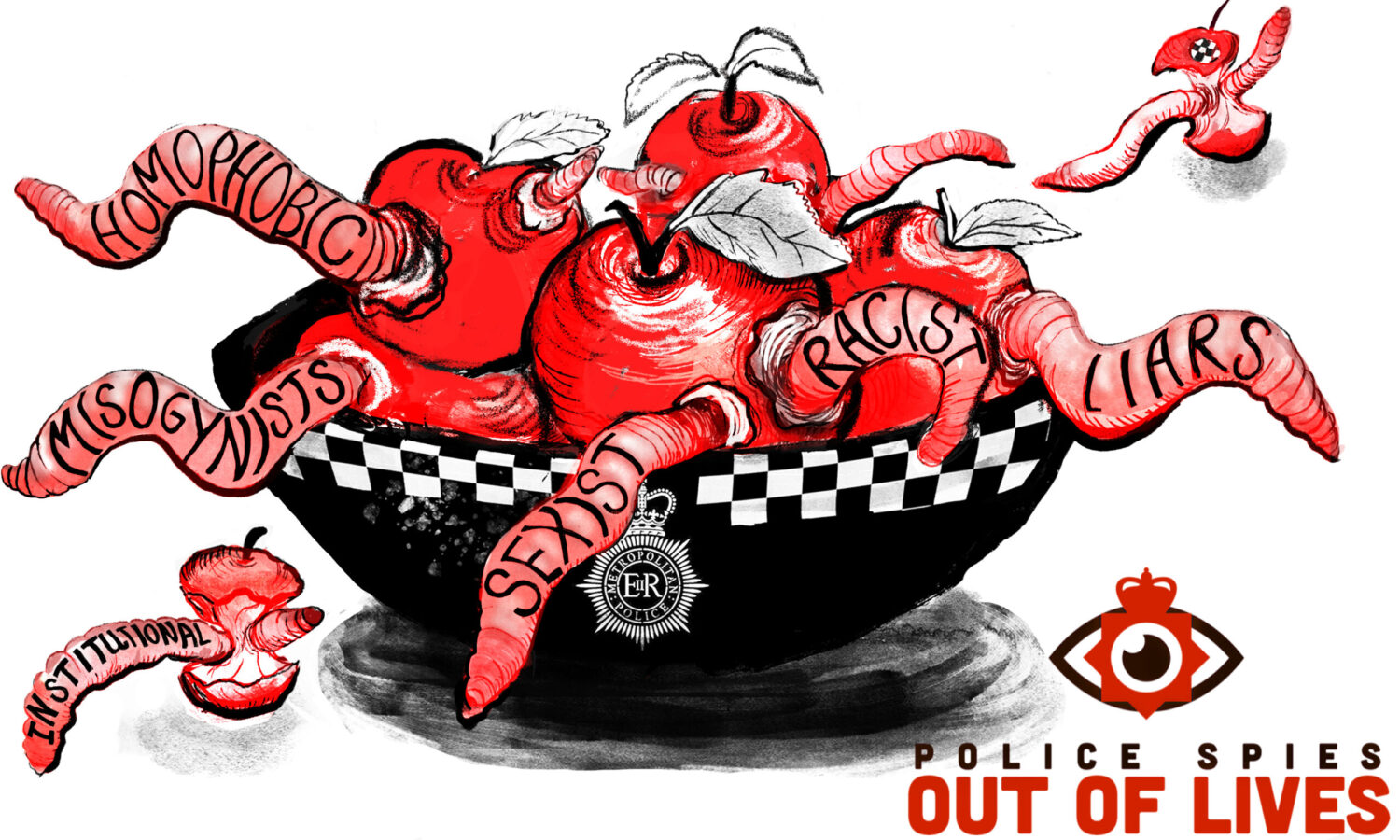At a court hearing this month, the police are applying to have the women’s case struck out, asserting that their claimed ‘policy’ of ‘Neither Confirm Nor Deny’ (NCND) means that they cannot comment or respond to the women’s claims – and therefore a trial should not take place because it would be unfair to the police.
It’s incredible that they are attempting to use their own refusal to disclose the truth about their actions to claim they then wouldn’t have a fair trial, and so deny any form of public trial or justice to the women who were abused.
Is there a ‘policy’ of NCND?
The women launched their legal action in December 2011, but it was not until June 2012 that the police first mentioned NCND in relation to the claim. You might think if there had been such a long standing policy this would have been highlighted in the first police response. No doubt the police do take measures to protect the identity of undercover officers and to ensure that operational methods are not widely disclosed, but that is not the same as a policy which prevents them from ever commenting, no matter what the circumstances.
Despite disclosure obligations required as part of the legal process the police have not provided any written document which sets out the purported policy. Such documentary evidence describing the policy, and requiring members of the force to comply with it, would ordinarily be expected given the stated purposes which the ‘policy’ serves.
The past shows no policy in place
In 2002 the Special Demonstration Squad co-operated with and gave their blessing to the TV series ‘True Spies‘ – former undercover officers and their supervisors were interviewed for the programme, and talked about operational undercover tactics.
In 2010, when Mark Kennedy was exposed by campaigners, the police confirmed to the media that he was an undercover officer. In 2011 they confirmed to the media that Jim Boyling was an undercover officer.
In October 2011 Met Police Chief Bernard Hogan-Howe was asked questions in relation to undercover officer Jim Boyling / Sutton at a meeting of the Metropolitan Police Authority. He answered and did not refer to a policy of NCND. Is it really plausible that the Met Chief would not know about or adhere to such a policy if it was in place?
These are just some examples which indicate that ‘Neither Confirm Nor Deny’ is not what the police claim it to be. In order to have the women’s case struck out the police are trying to present NCND as a policy that has no exceptions. They assert they have to adhere to this to protect the safety of officers. There appears to be little concern, however, about protecting members of the public from the actions of undercover officers and their commanders.
No hiding place
“Neither Confirm Nor Deny” should not be used as a shield to prevent any illegal and immoral activities by the police from ever coming to light. Effectively they are attempting to use NCND to evade accountability and avoid any genuine scrutiny of their actions.
The court hearing will begin on Tuesday 18 March 2014 – see here for details of a week of solidarity action. Supporters are asked to gather outside court on the first day of the hearing.

